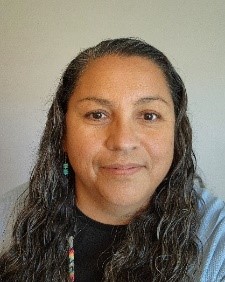October is recognized as Domestic Violence Awareness Month, a time to honor and remember those lost to abuse, celebrate and support survivors, and focus on awareness and prevention of domestic violence.

Domestic violence refers to a pattern of abusive behavior to gain power and control over an individual in any domestic situation, including a spouse or partner, parent, sibling, cousin, or other family member, or a roommate. The abusive behaviors or threats of action can include physical, sexual, emotional, economic, psychological, or technological abuse, as well as stalking. Domestic violence encompasses child maltreatment, elder abuse, dating violence, and intimate partner violence, which can occur between partners in a current or past romantic relationship whom may or may not live in the same household.
Preventing domestic violence is an urgent goal, yet it remains a pressing issue that disproportionately affects American Indian and Alaska Native communities. Data from the National Institute for Justice reveals the concerning extent of this problem:
- Over 1.4 million American Indian and Alaska Native men (82%) and more than 1.5 million women (84%) report having experienced violence in their lifetime.
- More than 1 in 3 Native men and women have experienced violence in the past year.
- Psychological aggression by an intimate partner is reported as the most common form of violence.
- American Indian and Alaska Native females report having experienced psychological aggression by an intimate partner (66.4%), sexual violence (56.1%), physical violence by intimate partner (55.5%), and stalking (48.8%).
- American Indian and Alaska Native males report psychological aggression by an intimate partner (73%), physical violence by intimate partner (43.2%), sexual violence (27.5%), and stalking (18.6%).
The IHS is committed to the development of evidence- and practice-based models for domestic violence prevention through a culturally appropriate approach and community-driven context. The IHS Office of Clinical and Preventive Services Division of Behavioral Health has awarded 41 grants to tribes, tribal organizations, and urban Indian organizations to advance prevention efforts for addressing domestic violence and sexual assault in Indian Country. To enhance prevention efforts and further build capacity, the IHS Division of Nursing Services has provided 16 federally-operated IHS sites with forensic healthcare funding opportunities, ensuring patients have access to medical forensic services following violent crimes such as sexual assault, domestic violence, or intimate partner violence.
What domestic violence prevention efforts and activities are you raising in your communities this October? Connect with your local IHS, tribal, urban health care facility, tribal organization, urban Indian organization, or local tribal coalitions to participate in this October’s Domestic Violence Awareness Month prevention and support activities, and throughout the year.
October 19, 2023, is Purple Thursday. Wear purple on October 19th to show support for individuals who have experienced domestic violence, to help raise awareness, and encourage others to prevent and address domestic violence.
Related content and resources:
- National Domestic Violence Hotline:
- Call 1-800-799-SAFE (7233)
- TTY 1-800-787-3224 or (206) 518-9361 (Video Phone Only for Deaf Callers)
- Six Ways to Prepare for Domestic Violence Awareness Month
- StrongHearts Native Helpline:
- 1-844-7NATIVE (762-8483)
- National Network to End Domestic Violence: DVAM 2023: #Every1KnowsSome1
- National Resource Center on Domestic Violence: Domestic Violence Awareness Project
- National Coalition Against Domestic Violence
- Indian Health Manual, Part 3, Chapter 31: Intimate Partner Violence
Billie J. Brown, Aaniiih (White Clay) & Nakoda (Assiniboine) of the Fort Belknap Indian Community in north-central Montana, serves as the forensic nursing coordinator with the IHS Division of Nursing Services, Office of Clinical and Preventive Services. Prior to her work with the IHS Forensics Healthcare team, Brown served in various nursing, nursing education, and leadership roles with rural tribal communities. This service has included work with Montana tribal colleges along with IHS, tribal, and private health care organizations on or near the Fort Belknap, Northern Cheyenne, and Crow Reservations in Montana.
Help us defend tribal sovereignty.
At Native News Online, our mission is rooted in telling the stories that strengthen sovereignty and uplift Indigenous voices — not just at year’s end, but every single day.
Because of your generosity last year, we were able to keep our reporters on the ground in tribal communities, at national gatherings and in the halls of Congress — covering the issues that matter most to Indian Country: sovereignty, culture, education, health and economic opportunity.
That support sustained us through a tough year in 2025. Now, as we look to the year ahead, we need your help right now to ensure warrior journalism remains strong — reporting that defends tribal sovereignty, amplifies Native truth, and holds power accountable.
 The stakes couldn't be higher. Your support keeps Native voices heard, Native stories told and Native sovereignty defended.
The stakes couldn't be higher. Your support keeps Native voices heard, Native stories told and Native sovereignty defended.
Stand with Warrior Journalism today.
Levi Rickert (Potawatomi), Editor & Publisher

